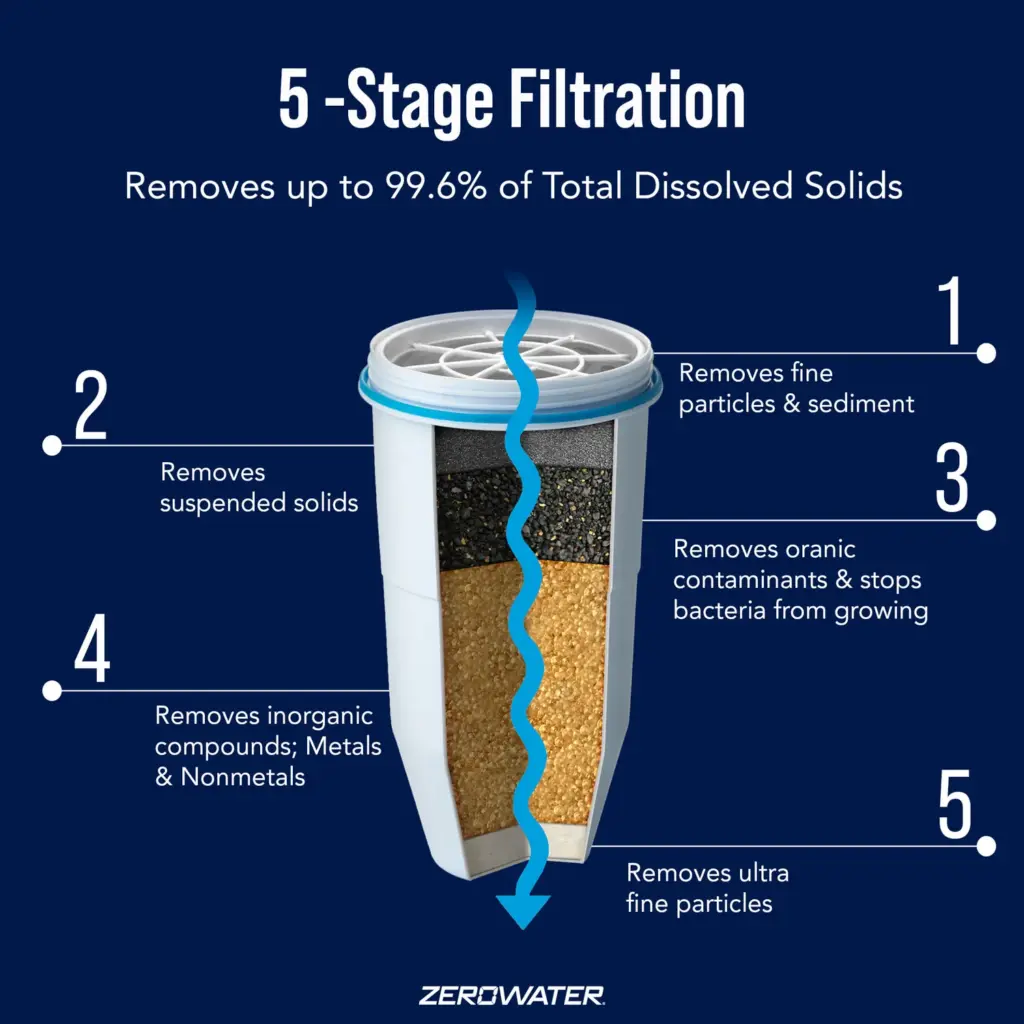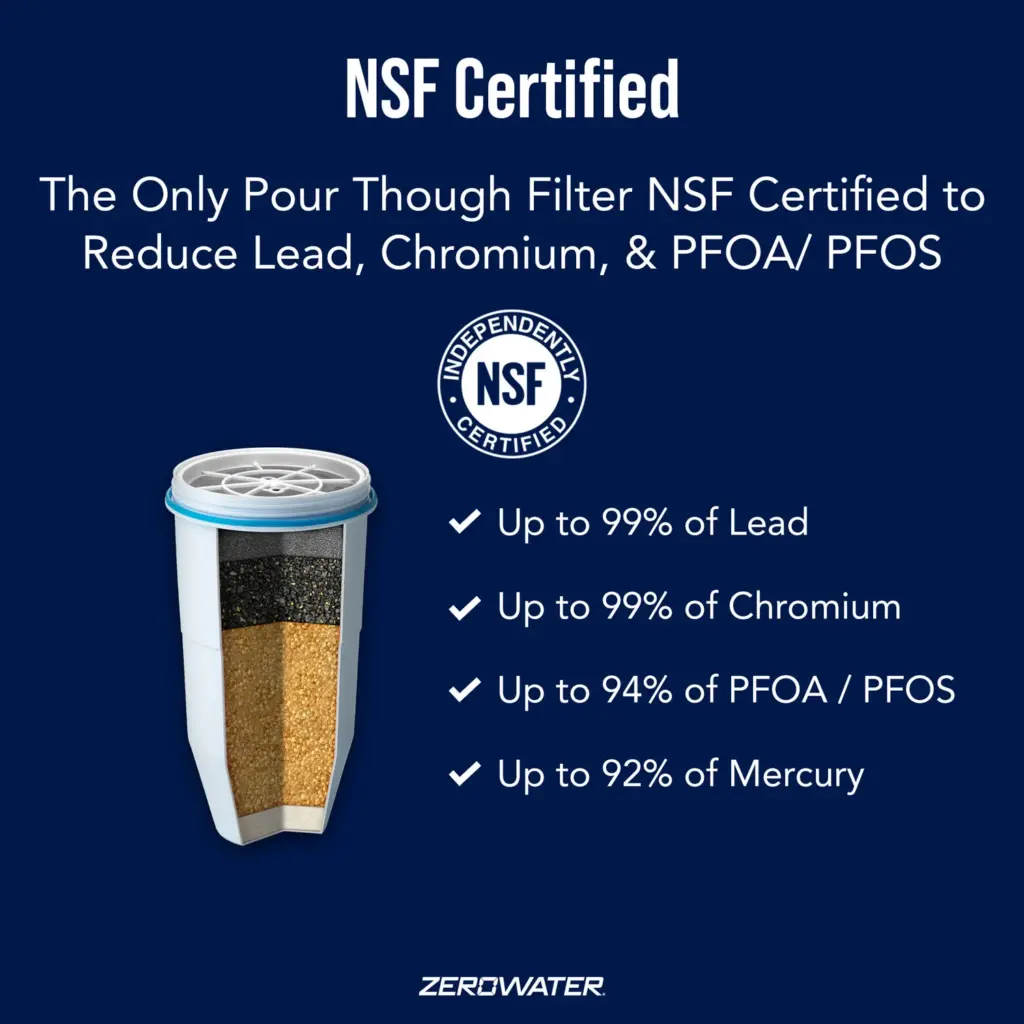
Water, the source of life, has been a focal point of human civilizations since the dawn of time. Throughout history, various techniques and innovations have been developed to ensure water’s safety for consumption. Let ZeroWater take you on a journey through the history of water filters, tracing how they’ve evolved over the millennia…
Ancient Beginnings
The need to filter water is not a recent phenomenon. Ancient texts and archaeological findings hint at rudimentary water purification techniques employed by our ancestors.
- Ancient Egypt: The famous Greek historian Herodotus wrote about the Egyptians’ use of a series of vessels to filter their water. Egyptians also used aluminium sulfate, iron sulfate, or a combination of both to eliminate suspended particles.
- Ancient Greece: Hippocrates, the father of medicine, recognised the importance of clean water for good health. He considered rainwater superior and emphasised that it should be boiled and filtered before consumption to eliminate any unpleasant odour and prevent voice hoarseness. He created the “Hippocratic sleeve” — a cloth bag through which water could be poured to filter sediment and reduce impurities.
Middle Ages to Renaissance
As time progressed, the dangers of contaminated water became more evident, especially during outbreaks of waterborne diseases.
- Sanskrit Writings: Ancient Sanskrit writings from around 2000 B.C. describe water treatment processes that involved heating water under the sun and filtering it through sand and coarse gravel.
- 14th Century: Sir John Harrington in England designed an early version of a flush toilet, which included a rudimentary filtration system.
19th Century – Science Meets Filtration
The 1800s marked a transformative period for water purification, as scientific understanding blossomed.
- Early 1800s: The use of sand filters became more popular in Europe. These filters were used to remove debris and reduce bacterial contamination. The earliest recorded instance of using sand filters to clean water dates back to 1804. This was when John Gibb, a bleachery owner in Paisley, Scotland, set up a test filter and sold the excess clean water to locals. Over the next twenty years, engineers from private water firms fine-tuned this method. The pinnacle of their efforts was realised in 1829 when engineer James Simpson established the world’s first treated public water system for the Chelsea Waterworks Company in London. This system supplied purified water to all local residents, and its design became a model replicated across the UK in the subsequent years.
- 1854: Dr. John Snow, during a cholera epidemic in London, discovered the link between contaminated water and disease. In his 1855 essay, “On the Mode of Communication of Cholera,” he showed the connection between Soho’s water supply and the spread of the cholera epidemic. By employing a dot distribution map and statistical evidence, he highlighted the link between water quality and the incidence of cholera. His findings persuaded the local council to shut down the water pump, leading to an immediate halt of the outbreak. This discovery was a watershed moment in understanding the importance of clean drinking water.
20th Century to Present – Modern Innovations
The modern era witnessed rapid advancements in filtration technology, with a growing understanding of microbes and chemicals.
- 1970s: The reverse osmosis process was perfected.
- Late 1900s: Activated carbon filters, which use a process of adsorption to trap contaminants, became popular in household and municipal applications.
- Today: Unlike most ordinary Two-Stage water filters, ZeroWater filters use a Five-Stage Filtration System which removes 99.6% of all total dissolved solids, including metals, salts, pesticides, and other contaminants from your tap water!
In tracing the rich tapestry of the history of water filtration, we witness humanity’s enduring commitment to health and the tireless pursuit of pure, clean water. Today, as we stand on the shoulders of those innovations, ZeroWater filters represent the pinnacle of that journey, ensuring every drop is as pristine as nature intended. Embrace the future of water purification with ZeroWater and taste the legacy of centuries of innovation.






